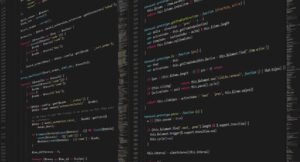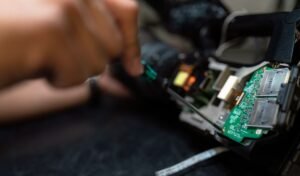Can AI Art Be Sold?
Artificial Intelligence (AI) has rapidly advanced in recent years and has begun to make its mark on the art world. AI art refers to artworks that are produced or generated with the help of AI technology. With the increasing sophistication of AI algorithms, AI-generated art has become more compelling and is gaining recognition from art critics and collectors alike. However, the question arises: can AI art be sold?
Key Takeaways
- AI art is created or generated using artificial intelligence technology.
- AI-generated art is gaining recognition in the art world.
- Legally selling AI art raises unique challenges.
- The attribution and ownership of AI art are still debated topics.
- Collectors and institutions are beginning to embrace AI art.
**AI-generated art presents unique challenges in terms of attribution and ownership**. Unlike traditional art, where the artist’s identity and intentions are typically clear, AI art blurs these lines. In some cases, the AI itself creates the artwork without human intervention, leaving questions about authorship and copyrights. Additionally, since AI algorithms continuously learn and evolve, **the boundaries between AI-generated art and human artistry become blurred**.
AI art raises interesting questions about **the nature of creativity and the role of machines in artistic expression**. Some argue that true creativity requires human consciousness and emotions, which machines do not possess. On the other hand, proponents of AI art argue that **machines can produce unique and interesting artworks that go beyond human capabilities**.
**The legal implications of selling AI art are complex**. Current copyright laws are based on the idea of human authorship, which makes it difficult to determine who owns the rights to an AI-generated artwork. Furthermore, the lack of clear authorship may affect the value of AI art in the market. **The legal framework surrounding AI art is still in the early stages of development**, and future amendments may be required to address these issues.
| Pros of Selling AI Art | Cons of Selling AI Art |
|---|---|
|
|
Collectors and institutions are starting to recognize the value of AI art. Some prominent art collectors have already acquired AI-generated artworks, and museums have hosted exhibitions showcasing AI art. These developments indicate a growing acceptance and market for AI-generated art. As the technology continues to advance, we can expect AI art to become more recognized and sought after in the art world.
| Examples of AI Artworks | Year |
|---|---|
| “Portrait of Edmond de Belamy” – an AI-generated painting sold at auction | 2018 |
| “AICAN” – an AI artist developed by Ahmed Elgammal | 2019 |
| “La Bella Principessa” – a disputed artwork possibly created with AI assistance | 2010 |
In conclusion, **AI art can be sold**, but it raises unique challenges in terms of ownership, authorship, and legal implications. The art world is slowly embracing AI-generated artworks, and collectors and institutions are starting to recognize their value. As AI technology continues to evolve, the boundaries between AI art and human creativity will become increasingly blurred, further shaping the future of the art market.

Common Misconceptions
Myth: AI Art Cannot Be Sold
One common misconception surrounding AI art is that it cannot be sold as it is an automated creation. However, this is far from the truth. AI-generated artwork can indeed be sold and valued just like any other form of art.
- AI art can possess unique aesthetic qualities that appeal to collectors.
- AI art can be considered a representation of the creative process and innovative technologies.
- AI-generated art may have limited editions, increasing its scarcity and value.
Myth: AI Art Lacks Originality
Another misconception is that AI art lacks originality because it relies on algorithms and pre-existing data. However, AI-generated artwork can be highly original as it interprets and creates based on human input and machine learning algorithms.
- AI art can produce unexpected and unique compositions that challenge traditional artistic approaches.
- Artists can apply personal styles to guide or fine-tune the AI’s output, resulting in a blend of man and machine creativity.
- The ability of AI to generate new and innovative artwork expands the boundaries of what is considered original in the art world.
Myth: AI Art Diminishes Human Creativity
Contrary to popular belief, AI art does not diminish human creativity. Instead, it enhances the creative process by providing artists with new tools and possibilities for artistic expression.
- AI can assist artists in exploring unconventional techniques and experimenting with new mediums.
- Artists can collaborate with AI systems, combining their own vision and creative instincts with the AI’s computational capabilities.
- AI-generated art can serve as a source of inspiration, sparking new ideas and pushing artists to explore uncharted territories.
Myth: AI Art Diminishes the Value of Traditional Art
One misconception is that AI art diminishes the value of traditional art forms. However, AI-generated artwork does not necessarily devalue traditional art; it simply introduces a new form of artistic expression.
- AI art can coexist with traditional art, offering a different perspective and attracting new audiences to the art world.
- The art market can embrace both AI-generated and traditional artwork, recognizing each for its distinct qualities and values.
- AI art may even create new opportunities for traditional artists to incorporate AI technology into their creative processes, leading to hybrid forms of art creation.
Myth: AI Art Is Not Authentic
Some people mistakenly believe that AI art lacks authenticity. However, authenticity in art is not solely determined by the creative entity but also by the intention, context, and emotional resonance it holds for both the artist and the audience.
- AI-generated art can reflect the intent and emotions of the artist who guided the AI system.
- The narrative and concept behind AI art can give it a sense of authenticity, just like in any other form of art.
- Viewers of AI art can experience emotional connections and meaning, making it an authentic artistic experience.

Can AI Art Be Sold?
Artificial intelligence (AI) has revolutionized various industries, and the art world is no exception. AI-created artworks are gaining recognition, raising fascinating questions about their value and marketability. Can AI art be sold? Let’s explore this topic by examining ten intriguing tables that shed light on this burgeoning field.
1. Top Five AI Art Auction Sales
Table showcasing the top five AI-generated artworks sold at auctions, including the artist, title, sale price, and year.
2. Comparison of AI Art Prices vs. Traditional Art Prices
A side-by-side comparison of the average prices of AI art pieces and traditional art pieces in various categories, such as paintings, sculptures, and digital art.
3. Most Expensive AI Art Sold Online
A table displaying the five most expensive AI artworks ever sold through online platforms, along with their selling prices and the platform where the sales occurred.
4. Galleries Representing AI Artists
A list of renowned galleries that represent AI artists, highlighting their names, locations, and the AI artists they represent.
5. Prestigious AI Art Awards
Details about the most prestigious awards given to AI artists, such as the organization hosting the award, previous recipients, and the recognition’s impact on the artists’ careers.
6. Market Growth of AI Art Sales
A graphical representation of the growth of AI art sales over the past decade, illustrating the annual sales revenue and percentage increase or decrease in sales compared to the previous year.
7. AI Art Collectors and Investors
A table presenting notable collectors and investors who have acquired AI artworks, including their names, acquired pieces, and their interest or expertise in AI-generated art.
8. AI Art Sales by Genre
A breakdown of AI art sales by genre, highlighting the most popular genres and their respective market share compared to other genres.
9. Exhibitions Featuring AI Art
An overview of major exhibitions that have prominently featured AI art, featuring the exhibition name, location, dates, and the number of AI art pieces exhibited.
10. AI Artists as Social Media Influencers
An exploration of AI artists‘ impact as social media influencers, listing the most followed AI artists, their platforms of choice, and their engagement rates.
From these intriguing tables, it becomes clear that AI art has indeed found a market and is gaining recognition. The prices of AI artworks are on the rise, with several pieces achieving considerable sums at auctions and online sales. Galleries and museums are embracing and representing AI artists, with major exhibitions dedicated solely to this genre. Additionally, AI artists are becoming influential figures on social media, captivating a wide audience.
AI art‘s market growth, combined with the increasing recognition and demand, suggests that these creations have secured their place in the art world. The discussion surrounding AI art‘s marketability is evolving rapidly, making it an exciting time for artists, collectors, and art enthusiasts alike.
Can AI Art Be Sold? – Frequently Asked Questions
Can AI-generated artworks be sold as unique pieces?
Yes, AI-generated artworks can be sold as unique pieces. Even though the artwork is created by an AI algorithm, it can still be considered an original composition.
Are AI-generated artworks protected by intellectual property rights?
Yes, AI-generated artworks can be protected by intellectual property rights. The ownership of the artwork can be attributed to the human creator or the AI algorithm developer.
Is there a market for AI-generated artworks?
Yes, there is a growing market for AI-generated artworks. Many art collectors and enthusiasts are intrigued by the unique aesthetic that AI algorithms can produce.
How are the prices of AI-generated artworks determined?
The prices of AI-generated artworks are determined by various factors, including the reputation of the artist or algorithm developer, the uniqueness of the artwork, and the demand in the market.
Can AI-generated artworks be exhibited in galleries and museums?
Yes, AI-generated artworks can be exhibited in galleries and museums. Many art institutions have started showcasing AI art as part of their exhibitions.
What happens if someone creates an identical AI artwork?
If someone creates an identical AI artwork, it can potentially affect the value and originality of the existing artwork. The context and origin of each artwork will need to be considered to determine its uniqueness.
What legal issues are associated with selling AI-generated artworks?
Legal issues related to selling AI-generated artworks can involve copyright, intellectual property, and licensing agreements. It is important for artists, developers, and buyers to ensure proper documentation and rights are established.
How can buyers authenticate AI-generated artworks?
Buyers can authenticate AI-generated artworks through documentation, certificates of authenticity, and verifying the ownership and origin of the artwork. Consulting experts and art appraisers can also assist in the authentication process.
Can AI-generated artworks retain their value over time?
AI-generated artworks can potentially retain their value over time. As the field of AI art evolves and gains recognition, certain pieces can become iconic and highly sought after by collectors.
What impact does AI art have on the traditional art market?
AI art has had a transformative impact on the traditional art market. It has opened up new possibilities for artistic expression and challenged traditional notions of creativity and authorship.




